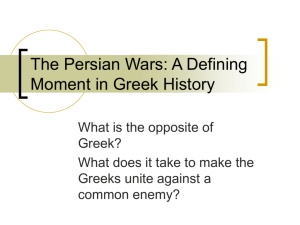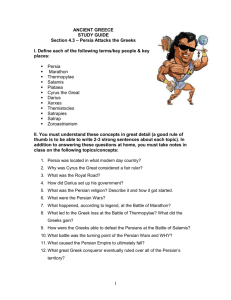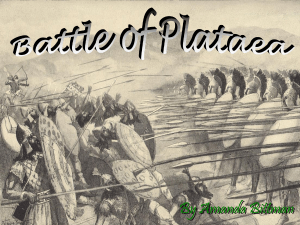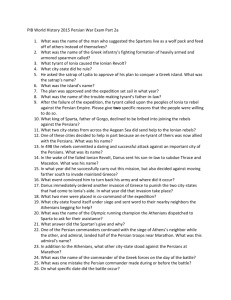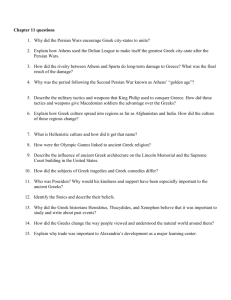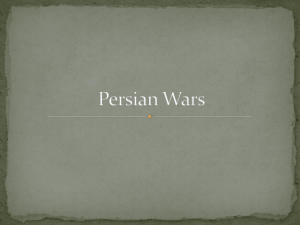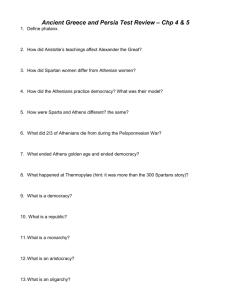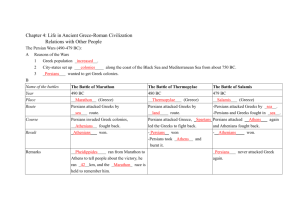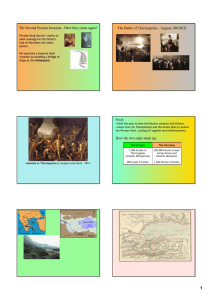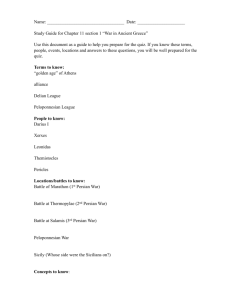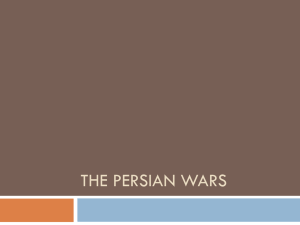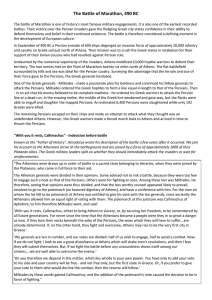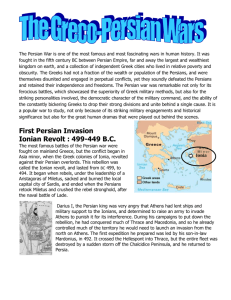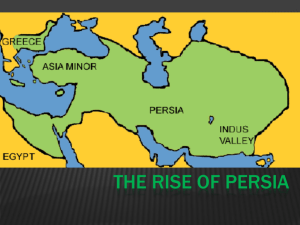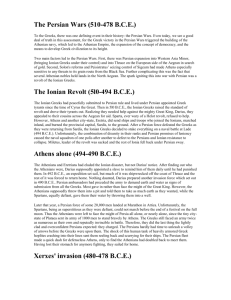Battle of Plataea - Lydia Sulda Professional Portfolio
advertisement
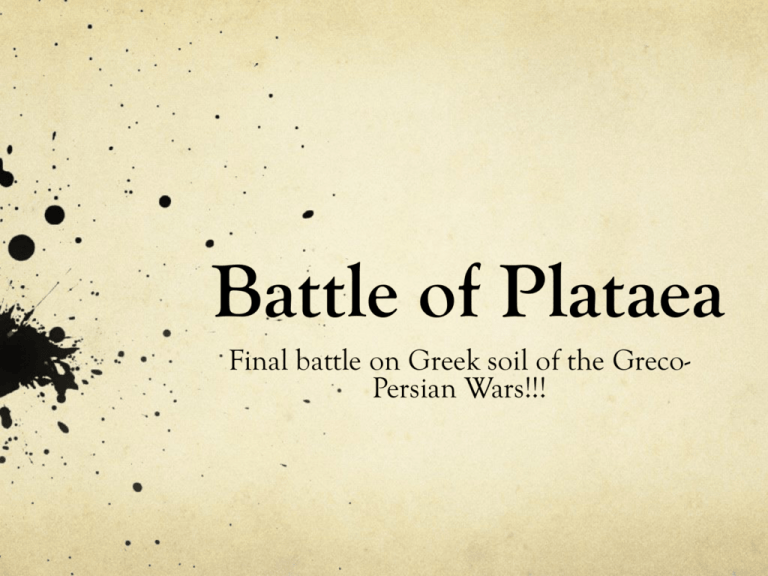
Battle of Plataea Final battle on Greek soil of the GrecoPersian Wars!!! After the Battle of Salamis Xerxes was worried that the Greeks would destroy his bridge at the Hellespont and leave him and his army stranded in Greece so he moved to take the majority of his army back across the Hellespont to Asia Left a part of his army in Greece for the winter under the control of his general, Mardonius with instructions to continue the fighting in Xerxes name Persian’s retreated from Athens back up to Northern Greece, allowing Athens free for the Athenians to return to their city and attempt to rebuild Athens and Sparta • Athens refused Mardonius’ request for earth and water again • Mardonius marched down from northern Greece, taking Athens again and burning it to the ground • Athenian’s all fled to Salamis again before he arrived • Sent word to Sparta urging them to join them in fighting Mardonius and his troops – Sparta agreed • Mardonius retreated back up to northern Greece near the town of Plataea which was made up of terrain better suited for his cavalry – Greek army followed him there Persian’s took position across the Asopus river, with flat terrain in front of them good for their advancing cavalry Greeks assumed position on a mountainous terrain opposite the Asopus which was a tactical advantage for their hoplites The lack of fighting was mostly due to tactical reasons. Neither side wished to give up the advantage that their position allowed them. Also neither side wanted the opposite to outflank them Both sides spent a great deal of time swapping the positioning of their troops to try and get a jump on their opponent Persian’s tainted the Greek camps water supply – the Greeks were then forced to move their camp further back to a more secure source of water Prolonged Stalemate Persian’s thought that the Greeks moving the camp back was their side retreating – so they charged forth to attack them Greek line initially very fragmented as the various troops filtered in The advance had the Persian cavalry on sloping ground, which was a disadvantage to their troops but an advantage to the Greek side Spartan’s refused to begin the fight until their omens favoured victory – stayed under a barrage of arrows etc. from the Persians until the sign finally came and then they joined the battle Greeks able to defeat the Persians – a large number of the Persian troops were trapped in their encampment, which the Greek troops stormed and overcame their defences Greek victory!!!! The Battle Important People Pausanias – Regent of Sparta – Leonidas’ brother Aristides – commander of the Athenian troops – extremely popular with the Athenian people – previously at the Battle of Salamis Mardonius – General left in charge of the remains of Xerxes army in Greece – commander of the Persian side Remember these things Battle primarily won through the work of the Spartan army – perhaps this is why its not considered as famous or heroic compared to the Battle of Marathon or Salamis where the Athenians were heavily involved Persians never returned to fight the Greeks on Greek soil Mycale (fought on the shores of Asia Minor) – naval battle where the Greeks destroyed the Persian fleet – freed the Ionians from the Persians Athens became the centre of an Empire – Athenians gained great confidence from their defeat of the Persians (comparable to when England defeated the Spanish Armada) Next 50 years was the Golden Age (479 to 432 BC) – The Classical Age – laid down the basis of Western civilisation Spartans and Athenians went to war against each other (silly!) – Athenians were defeated – End of the Golden Age of Athens Random FACT Kuwait is about 60% male (highest in the world). Latvia is about 54% female (highest in the world).
